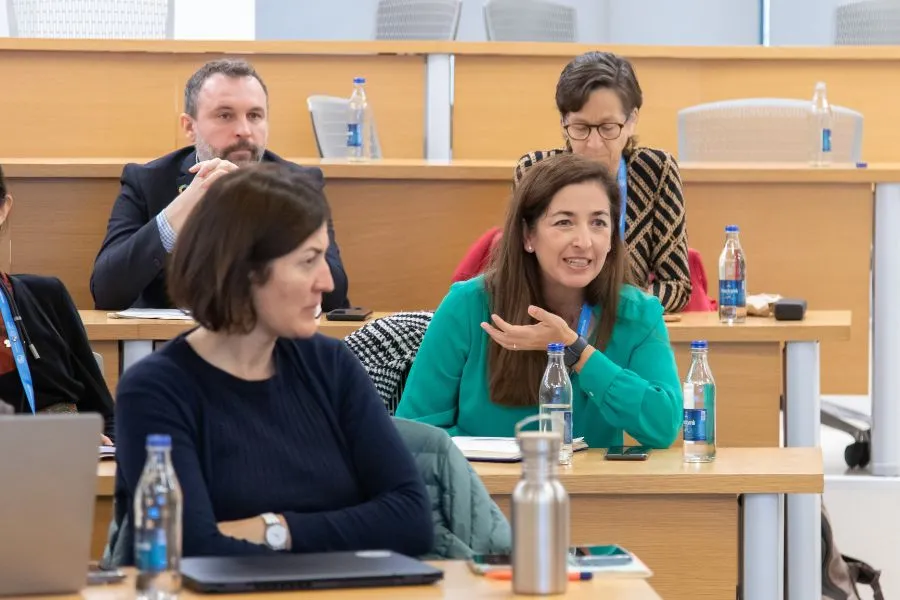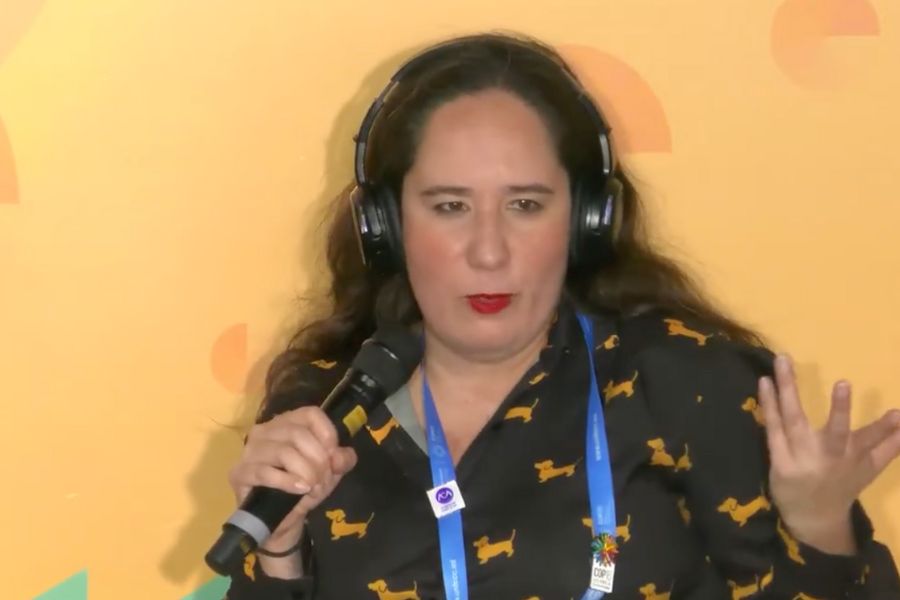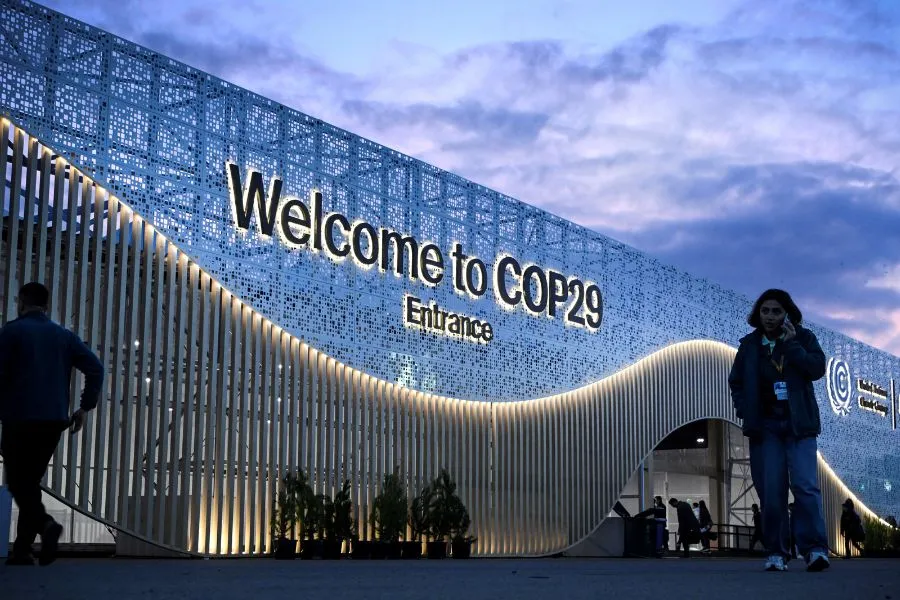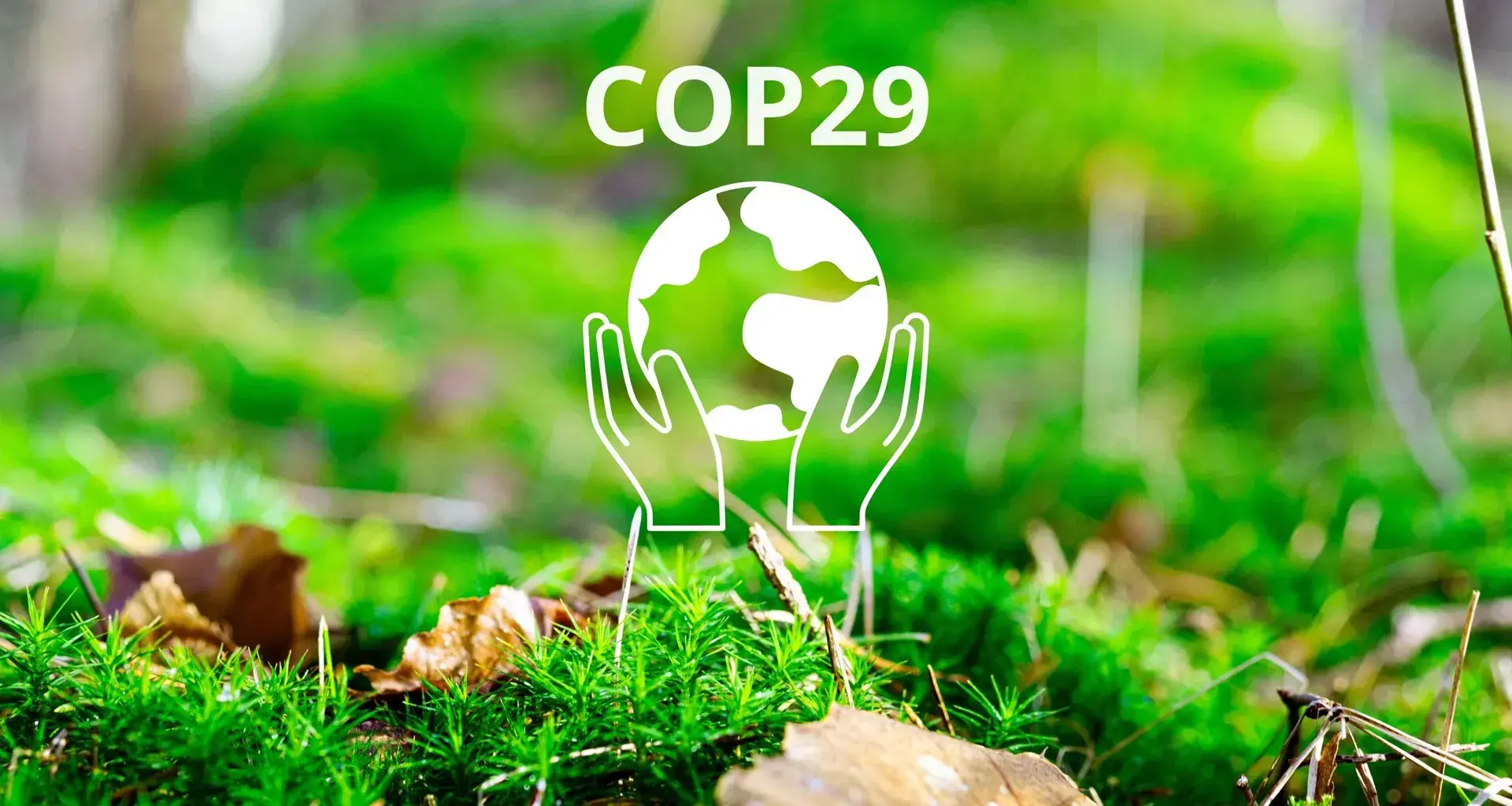The Tec de Monterrey community participated in the 29th edition of the Conference of the Parties (COP) in Azerbaijan, sharing the progress of its proposals on climate change at the global meeting.
In this edition, the Tec’s delegation was formed by Paola Visconti, Director of Sustainable Development and Engagement, and Valeria Soto, Initiative Evaluation and Integration Coordinator.
Also participating were Sebastián Gradilla, Associate Director of the Regional Department of Sustainable Technologies and leader of the Ruta Azul Research Axis, and Perla Martínez, Operations Manager of the Center for the Future of Cities.
“Through our participation, together with allies, we aim to activate climate action projects such as decarbonization, along with adaptation actions and climate resilience building,” Martínez said.
“We’re preparing ourselves, as a society, as a city, and as a community of this institution to have better environmental conditions and reduce the risks and vulnerabilities of the climate crisis,” she added.
Tec Community joins COP29 with a multi-axis vision
Learning, exploring, building, strengthening networks and, above all, mobilizing the efforts and talent of the Tec de Monterrey community and its allies for climate action is the vision that the institution shared at COP29.
Visconti also pointed out how the attendees approached different interventions within the meeting under a joint vision that addresses the climate crisis through axes such as education, research, and alliances.
“Each had a unique role at COP. Perla spoke on the axis of cities and the transformative power of universities in cities, and Sebastián addressed this applied research approach,” Visconti said.
“Valeria and I participated from a partnership perspective, highlighting the role of universities in mobilizing climate action and ensuring the presence and voice of educational institutions,” she added.
In the case of Gradilla, his participation in research incorporated innovation in conjunction with technology and multisectoral engagement in areas such as building resilience to the environmental crisis.
Both Martínez and Visconti agreed on the importance of the delegation’s interventions from a Latin American perspective, laying the groundwork for COP 30 in Brazil.
“It was about engaging, but mostly about listening to find out what is being worked on in other Latin American countries, such as Buenos Aires, Brazil, and of course allies in the region such as Chile and Colombia with whom we’re in La Tríada”, Martínez.

Environmental transformation with commitment
As one of 542 universities with carbon neutrality commitments in the world, according to Race to Zero, the Tec delegation shared some of the progress that has been made through the institution’s initiatives.
According to Martínez, the involvement and constant support and work of the community, together with non-state allies, are indispensable elements, not only for the institution, but for society as a whole.
“We’re working together to confront the most important threat to humanity. There hasn’t been a more important crisis, a more serious, graver, more dangerous threat than the climate crisis,” she said.
Considering that Tec de Monterrey has a commitment to carbon neutrality by 2040 at the latest, in alignment with the Paris Agreement, the delegation shared the progress of its longitudinal impact projects.
Ruta Azul, the Tec’s Sustainability and Climate Change Plan for 2025, is one of the initiatives that both Visconti and Martínez addressed in their talks as an example of a holistic strategy.
“One particular point that distinguishes this plan is that we put the culture of proactive sustainability at the center,” Visconti said during one of her contributions at the summit.
“Another central axis has been to promote applied research and innovation focused on mitigation, adaptation, and culture in relation to climate change through elements such as living laboratories,” she said.

Allies and a diverse community facing a common problem
The delegation also pointed out the efforts made during this edition to create spaces for listening and connection with the objective of joining voices and efforts with allies such as higher education institutions in the region.
An example of this is the active collaboration with organizations such as America Is All In, with whom they discussed the position of Canada, the United States, and Mexico on climate action through education.
“Allies like these are always very receptive to including other voices, always supporting each other in the process with the intention that, the more, and the more diverse, the better,” Visconti said.
“Working together is essential in the case of Latin American universities, as they are the closest to our context, with the strengths and challenges of the region, working through inclusion and recognition,” she added.

Martínez and Visconti also agree on the importance of collaborating and amplifying actions not only through international alliances, but also through the Tec community itself and the talent of its professors, graduates, and leaders in training.
“It’s about promoting and nurturing talent with climate justice awareness (...) to form a community prepared for this great transformation, this transition to renewable energy sources and ecosystem restoration,” Martínez said.
In addition to the ongoing work with groups such as Network for Network, Visconti also noted the interest shown by students who, in addition to being interested in attending these types of meetings, also create their own research, innovation, and dissemination projects.
“At this COP, Mexico established the commitment to be carbon neutral by 2050 at the latest.” – Perla Martínez
COP30, a vision of opportunities from the Latino perspective
With Brazil being selected as the host of the next summit, the Tec delegation that attended this edition sees the next meeting as a unique space where Mexico can contribute through its uniqueness.
“At this COP, Mexico established the commitment to be carbon neutral by 2050 at the latest, and we also saw a growing involvement and interest from various stakeholders,” said Martínez.
“We’re strengthening relations, and I think we’re on the right track as a region to continue growing and have a stronger presence towards COP30,” Visconti said.
Visconti said that she was proud and pleased with the involvement of this part of the Tec community and its leadership in mobilizing for climate action.
In addition, the panelists hope to continue to grow the involvement and presence of other
parts of this community in the future, as well as to continue to grow and strengthen the ties of international collaboration.
Finally, they seek to continue working and nurturing urban climate action projects, reducing vulnerabilities and risks through a focus on climate resilience.

Conference of the Parties
The twenty-ninth edition of the Conference of the Parties (COP) was held November 11-22, 2024, in Baku, Azerbaijan.
The COP is the annual summit held by the United Nations Framework Convention on Climate Change (UNFCCC), which brings together the 196 countries plus the European Union that make up the Parties.
This year, the main topic of negotiation was the New Quantified Collective Goal on Climate Finance, which seeks to mobilize resources for climate change mitigation and adaptation at the global level.
In addition to being a space for negotiation, COP serves as a space for multi-sectoral dialogue and collaboration with the participation of civil society actors seeking to advance climate action collectively.
For the fourth consecutive year, Tec de Monterrey participated with a delegation made up of experts from Ruta Azul and the Center for the Future of Cities.
Ruta Azul is the name of Tec de Monterrey’s Sustainability and Climate Change Plan for 2025, which will serve as a path to achieve a sustainable future and become a model institution for sustainability.
READ ALSO:





